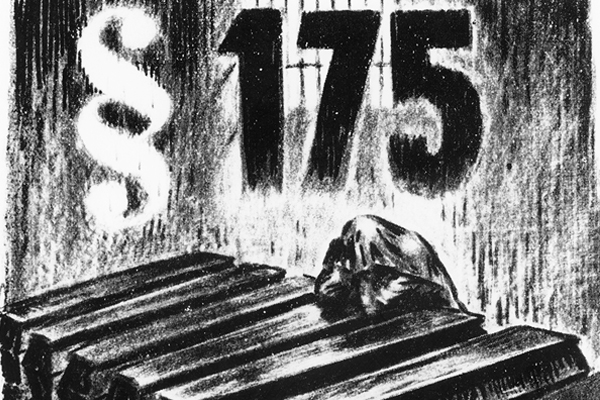
This 1950–51 political cartoon depicts a grieving figure kneeling by the coffins of homosexuals who were driven to suicide in consequence of Paragraph 175. US Holocaust Memorial Museum
This talk explores the long-term implications of the Nazis’ violent campaign against homosexuality. Drawing from previously unused archival material and investigative interviews in Germany and the United States, Dr. Jake Newsome traces how memories of the Holocaust influenced gay rights activism on both sides of the Atlantic and ultimately shaped contemporary understandings of sexual identity, human rights, and citizenship in modern democratic societies.
Dr. Newsome is the manager of College Student Leadership Initiatives at the Museum, where he works with college students, faculty, and campus life professionals to teach civic engagement, ethical decision-making, and responsible citizenship through the study of the Holocaust. He earned his PhD at the State University of New York at Buffalo, and his research focuses on Holocaust history, gender and sexuality, and memory studies. His current book project explores how various individuals and groups in Germany and America have debated the legacy of the Nazis’ violent campaign against homosexuality.
Speakers
Dr. Jake Newsome, Manager, College Student Leadership Initiatives, United States Holocaust Memorial Museum
Held by SUNY Cortland’s Campus Artist and Lecture Series (CALS), Center for Gender and Intercultural Studies (CGIS), Clark Center for Global Engagement, History Department, Jewish Studies Department, and Project on Eastern and Central Europe (PECE).
This program is made possible by the Campus Outreach Lecture Program of the United States Holocaust Memorial Museum's Jack, Joseph and Morton Mandel Center for Advanced Holocaust Studies, supported by the Leonard and Sophie Davis Fund.
